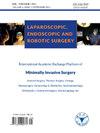Helicobacter pylori infection may result in poor gastric cleanliness in magnetically controlled capsule gastroscopy examination: A single-center retrospective study
Q3 Medicine
引用次数: 0
Abstract
Objective
Magnetically controlled capsule gastroscopy (MCCG) is an effective method for screening gastric diseases; however, its performance may be affected by gastric cleanliness. We aimed to explore the correlation between Helicobacter pylori infection and the degree of gastric cleanliness in the MCCG.
Methods
This retrospective study enrolled 297 participants from October 2020 to April 2024 at Sir Run Run Shaw Hospital, Zhejiang University School of Medicine. Participant characteristics, MCCG examination results, and (13) C-urea breath test (C13-UBT) results were collected. The gastric cleanliness in MCCG examinations was assessed using a gastric cleanliness score. Binary logistic regression was used to analyze the relationships among participant characteristics, H. pylori infection, and gastric cleanliness. Chi-square tests and Fisher's exact tests were used to analyze the relationships among gastric lesions, H. pylori infection, and gastric cleanliness.
Results
Among the participants, 24.2% had H. pylori infection, and 17.5% had poor gastric cleanliness. Hypertension (odds ratio [OR]: 2.63; 95% confidence interval [CI]: 1.36–5.09; p = 0.004) was associated with a greater likelihood of H. pylori infection. H. pylori infection (OR: 3.76; 95% CI: 1.99–7.09; p < 0.001) was an independent risk factor for poor gastric cleanliness in the MCCG. A significant disparity was noted in the prevalence of focal erosions (p < 0.001), gastric ulcers (p = 0.001), and positive gastric lesions (p = 0.027) between the 2 groups with and without H. pylori infection. The proportion of positive gastric lesions was not significantly different between the good gastric cleanliness group and the poor gastric cleanliness group (25.7% vs. 21.2%; p = 0.490).
Conclusion
The findings of this study revealed that H. pylori infection was associated with hypertension. H. pylori infection may lead to poor gastric cleanliness. Institutions are advised to perform C13-UBT before MCCG, and participants should be informed of the risk of poor gastric cleanliness if the results are positive. The decision to perform H. pylori eradication before MCCG should take into account patient willingness and the benefit-to-risk ratio.
幽门螺杆菌感染可能导致磁控胶囊胃镜检查中胃部清洁度不佳:单中心回顾性研究
目的磁控胶囊胃镜(MCCG)是筛查胃部疾病的有效方法,但其效果可能会受到胃部清洁度的影响。我们旨在探讨幽门螺杆菌感染与 MCCG 检查中胃部清洁度之间的相关性。方法这项回顾性研究于 2020 年 10 月至 2024 年 4 月在浙江大学医学院附属邵逸夫医院招募了 297 名参与者。研究收集了参与者的特征、MCCG检查结果和(13)C-尿素呼气试验(C13-UBT)结果。采用胃清洁度评分评估 MCCG 检查中的胃清洁度。采用二元逻辑回归分析参与者特征、幽门螺杆菌感染和胃清洁度之间的关系。采用卡方检验和费雪精确检验分析胃部病变、幽门螺杆菌感染和胃清洁度之间的关系。高血压(几率比 [OR]:2.63;95% 置信区间 [CI]:1.36-5.09;P = 0.004)与幽门螺杆菌感染的可能性较大相关。幽门螺杆菌感染(OR:3.76;95% 置信区间 [CI]:1.99-7.09;p = 0.001)是 MCCG 中胃部清洁度差的独立风险因素。在幽门螺杆菌感染和未感染幽门螺杆菌的两组中,局灶性糜烂(p <0.001)、胃溃疡(p = 0.001)和胃部阳性病变(p = 0.027)的发生率存在明显差异。胃清洁度良好组和胃清洁度较差组的阳性胃病变比例无明显差异(25.7% vs. 21.2%; p = 0.490)。幽门螺杆菌感染可能导致胃部清洁度差。建议医疗机构在进行 MCCG 检查前进行 C13-UBT 检查,如果结果呈阳性,应告知参与者胃清洁度差的风险。在决定是否在 MCCG 前进行幽门螺杆菌根除治疗时,应考虑患者的意愿和获益风险比。
本文章由计算机程序翻译,如有差异,请以英文原文为准。
求助全文
约1分钟内获得全文
求助全文
来源期刊

Laparoscopic Endoscopic and Robotic Surgery
minimally invasive surgery-
CiteScore
1.40
自引率
0.00%
发文量
32
期刊介绍:
Laparoscopic, Endoscopic and Robotic Surgery aims to provide an academic exchange platform for minimally invasive surgery at an international level. We seek out and publish the excellent original articles, reviews and editorials as well as exciting new techniques to promote the academic development.
Topics of interests include, but are not limited to:
▪ Minimally invasive clinical research mainly in General Surgery, Thoracic Surgery, Urology, Neurosurgery, Gynecology & Obstetrics, Gastroenterology, Orthopedics, Colorectal Surgery, Otolaryngology, etc.;
▪ Basic research in minimally invasive surgery;
▪ Research of techniques and equipments in minimally invasive surgery, and application of laparoscopy, endoscopy, robot and medical imaging;
▪ Development of medical education in minimally invasive surgery.
 求助内容:
求助内容: 应助结果提醒方式:
应助结果提醒方式:


